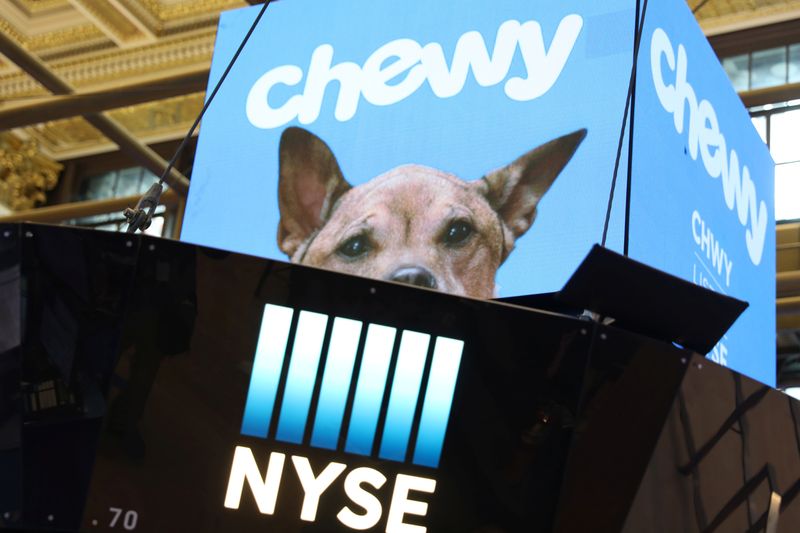Investing.com -- Chewy (NYSE:CHWY) shares climbed over 2% on Wednesday after Bank of America (NYSE:BAC) analysts double upgraded the pet retailer stock from Underperform to Buy, while also raising the price objective (PO) to $40 from $24.
BofA's analysis indicates that despite a year-over-year (YoY) negative trend in pet spending, the adoption rates have been on the rise since the beginning of 2024, suggesting that the worst may be over for the industry.
The bank now expects the pet industry to return to a consistent low to mid-single-digit percentage growth rate.
The upgrade also reflects encouraging company-specific signs, including a significant uptick in Chewy's web traffic, which has seen a 6% YoY increase in the fiscal third quarter compared to an 11% decline in the first quarter. This growth, according to BofA, “is supportive of share gains & possibly better than expected customer count (key stock metric).”
BofA's bullish outlook is further bolstered by Chewy's strong expense management, particularly in selling, general, and administrative (SG&A) expenses, and scaled fulfillment expenses. The shift towards higher gross margin sales, including advertising and health services, is expected to provide an opportunity for significant earnings growth in the coming years.
The bank’s analysts project Chewy's EBITDA to be $719 million and $917 million for fiscal years 2025 and 2026, respectively, figures that are above the current Street consensus.
“We think investors will be willing to pay a premium for Chewy particularly in the context of persistent discretionary headwinds in eComm,” analysts noted.
The retailer’s subscription-like business model, minimal exposure to discretionary spending categories, and historically consistent trends within the pet sector also help improve its revenue and earnings visibility.
In terms of valuation, analysts explain that their raised PO is based on a 17 times multiple of the company's projected 2026 enterprise value/EBITDA, which they believe is justified by Chewy’s model and earnings power.
At the same time, BofA also pointed out several risks to its bullish thesis, including limited market share gains due to competition, a cap on long-term margin expansion from rivals like Amazon (NASDAQ:AMZN) and Walmart (NYSE:WMT), potential overhang from private equity ownership, margin pressures from international expansion, and the possibility of extended discretionary spending pressures due to potential tariffs.
